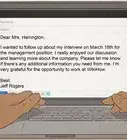This article was co-authored by Colleen Campbell, PhD, PCC. Dr. Colleen Campbell is the Founder and CEO of The Ignite Your Potential Centers, Career and Life Coaching based in the San Francisco Bay Area and Los Angeles. Colleen is an International Coach Federation accredited Professional Certified Coach (PCC). Colleen received her MA and PhD in Clinical Psychology from Sofia University and has been career coaching since 2008.
There are 8 references cited in this article, which can be found at the bottom of the page.
This article has been viewed 121,523 times.
Getting a position with an employer after being self employed is an obtainable goal. However, it will come with its own unique challenges. Employers will need to be assured of your reasons for joining a team or company and that you have the skills or qualifications they are looking for. Tailor your job search process to meet these needs in order to increase your chances of obtaining the position you are seeking.
Steps
Creating Or Updating Your Resume
-
1Create a functional resume. Resumes generally require you to quickly and effectively summarize your previous work experience and skill sets. However, being self employed may present a challenge when considering what to list when it comes to work experience. To remedy this, keep the focus on your skills that you either learned or utilized during you time being self employed.[1]
- List your most impressive skills first.
- Try listing a skill or duty first and follow it with client or employer information.
- The focus is on demonstrating your capabilities rather than your history.
- You won't need to list your past work experience in chronological order.
EXPERT TIP"If you don't have much experience, try to take part in a pro bono project or a piece of contract work that you can list on your resume."
Dr. Colleen Campbell is the Founder and CEO of The Ignite Your Potential Centers, Career and Life Coaching based in the San Francisco Bay Area and Los Angeles. Colleen is an International Coach Federation accredited Professional Certified Coach (PCC). Colleen received her MA and PhD in Clinical Psychology from Sofia University and has been career coaching since 2008.
Colleen Campbell, PhD, PCC
Career & Life Coach Colleen Campbell, PhD, PCC
Colleen Campbell, PhD, PCC
Career & Life Coach -
2Include a brief mission objective. Chances are your employer will wonder why you are seeking to leave your self-employed position and join their enterprise. Briefly explaining your rationale behind your career change can help you appear as an appealing candidate who is making a sensible choice.[2]
- The best place for your mission statement is on the cover page of your resume.
- The aim of your mission statement is to answer any concerns your employer may have regarding how you will adjust to working in a team setting.
- Your reasons should demonstrate that you are going to be a good fit at your new place of employment.
- A general mission statement might read something like "Seeking a dynamic workplace that allows me to use my interpersonal skills in a challenging environment."[3]
Advertisement -
3List the right references. A difficult part of seeking work after being self-employed is the fact that you likely have few people who can vouch for your successes or strengths. However, there may be some people that you can use to provide excellent references or otherwise confirm that you are indeed a great fit for your new position.[4]
- Any close clients that you had can serve as references.
- If you had a partner in the business, they can provide a reference.
- Personal contacts might provide good references.
Applying For Positions
-
1Find a company that has the right culture. Not all companies have the same goals even if they are looking to fill the same position. Finding a company that agrees with your own personal values can make sure that you will be comfortable working there. This can also help by assuaging any fears that your new employer might have regarding how well you will fit their culture.[5]
- Try looking online at the company's website to get a better feel for their culture.
- Ask any contacts you might have what the culture is like at the place you are investigating.
- Looking up reviews of the company can give you a good idea of how they interact with either past employees or customers.
- Most every employer will have some kind of social networking presences that you can examine.
-
2Look for companies that can benefit from your skills. When searching for a position after being self-employed, it can be a good idea to focus the search on companies that have a unique need for your skill set. Presenting yourself as someone capable of filling a specific need that an employer might have can give you the advantage and allow your application to be taken into consideration.[6]
- Keep this in mind when crafting your resume and objective. If they need a team leader, you can emphasize your ability to self-start and keep yourself on task, which will translate nicely.
EXPERT TIPDr. Colleen Campbell is the Founder and CEO of The Ignite Your Potential Centers, Career and Life Coaching based in the San Francisco Bay Area and Los Angeles. Colleen is an International Coach Federation accredited Professional Certified Coach (PCC). Colleen received her MA and PhD in Clinical Psychology from Sofia University and has been career coaching since 2008.Career & Life Coach
 Colleen Campbell, PhD, PCC
Colleen Campbell, PhD, PCC
Career & Life CoachConsider a change to something similar to what you already have experience doing. Career and life coach Dr. Colleen Campbell says: "When you're changing careers, it can be really hard to translate the skills from your old job, but it's not impossible. Often, it's a good idea to find a balance between the right fit for yourself and the opportunities that are available. However, if what you want is a complete change, you can do that by creating a strategic action plan."
-
3Network. Finding a new position and successfully obtaining it using large on-line databases or other traditional job search methods might work. However, these methods can be difficult for a previously self employed person to find success with. Instead, networking is the best option for finding an open position and getting an interview after being self employed.[7] [8]
- Make your professional goals known to those you meet. You never know who might end up helping you obtain a new position.
- Finding a friend that already works in a field you're interested is a great way to make contacts in that field. You might also be able to make additional contacts through people you already know.
- Talk about your skills and accomplishments as well as anything you are currently working on.
- Keep track of the names and faces of any contacts you make.
-
4Start a blog. A great way to demonstrate your skill and personal passion for whatever position you might be seeking is to start a blog. By creating quality and engaging content about your chosen field of interest, you can demonstrate your skills, knowledge, and ability to a potential employer. Start posting to your blog regularly and work to build up an impressive display of your professional value.
- You might want to turn your blog into your resume by including a neat presentation of your qualifications and contact information.
- Make sure your blog is sending the right message. Keep your content, tone and presentation clean and professional.
-
5Attend professional gatherings. Seek out professional associations, conferences, and conventions that work in the field you are trying to gain employment with. Attending these meetings will allow you to learn new skills and meet new people, giving you fresh leads on open positions to pursue.
Succeeding During Your Interview
-
1Research the company. Before you enter into the interview take some time to research the company. Having some in depth information about the company will allow you to present yourself in a way that fills their needs, demonstrates your compatibility with the culture, and will let you think of questions to ask during the interview.[9]
- Interviews are two-way processes. Don't forget that you can evaluate the company as well.
- You might want to ask what the company's goals are for the future.
- Present yourself in a way that shows you being a good match for the organizational nature of the company.
- Pay careful attention to the language used by the organization or the job offer and try to mirror it. Use words like "motivated", "focused" or "reliable" to describe yourself.
-
2Follow some of the standard practices. Although your interview may vary slightly due to the nature of the the position you are applying for, most interviews have some common elements to them. By following the general interview techniques you can help make sure that your interview is a successful one.[10]
- Leave yourself enough time to show up early.
- Dress appropriately for the position and work culture you are applying for.
- Be courteous and polite to everyone you meet even if they aren't directly interviewing you.
- Practice your interview before hand.
-
3Represent your strengths. During the interview you will want to focus on what it is exactly you are offering to bring to your new employer. Although you may have outlined this on your resume you now have a chance to fully express why your skills are needed and how you will benefit the employer.[11]
- Discuss your skills in a way that shows how they will be a perfect and unique fit.
- For example, you might say something like "When I ran my own firm, I successfully landed X client despite their initial hesitance to go with a small business. I know that I can use the same persuasive ability to help your firm."
- Showcase your marketing skills by demonstrating a successful campaign you ran.
- If you did have employees or contractors, talking about how you managed your team can demonstrate your leadership capabilities.
-
4Expand on your reasons for leaving self-employment. Even if you have included in your resume a brief description of why you are seeking employment now is a great time to explain this in more detail. Your employer may be worried that you will not be a good fit or team-member because of your work history. Use this time to demonstrate how excited you are about aspects of working with others again.[12]
- Make it clear that working for or under someone else is not a problem.
- Expressing enthusiasm about working on a team again can also be a good idea.
- You might try saying something like "As my own boss, I found that I missed the creative energy I get from bouncing ideas off other people. I am looking forward to once again being part of an energetic and dynamic team."
References
- ↑ https://owl.english.purdue.edu/owl/resource/927/04/
- ↑ http://www.askamanager.org/2010/09/are-employers-hesitant-to-hire-formerly.html
- ↑ http://www.nccu.edu/formsdocs/proxy.cfm?file_id=1944
- ↑ http://www.irishjobs.ie/careeradvice/how-to-get-a-job-after-being-self-employed/
- ↑ http://www.cio.com/article/2906379/careers-staffing/how-to-tell-if-a-companys-culture-is-right-for-you.html
- ↑ http://info.theladders.com/career-advice/self-employed-to-employee-making-switch
- ↑ http://www.entrepreneur.com/article/245499
- ↑ http://info.theladders.com/career-advice/self-employed-to-employee-making-switch
- ↑ http://info.theladders.com/career-advice/self-employed-to-employee-making-switch
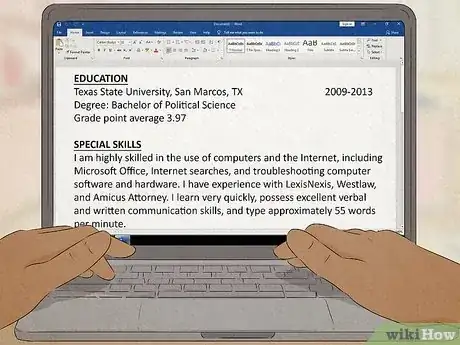
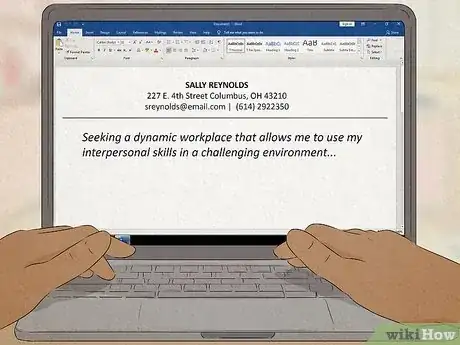
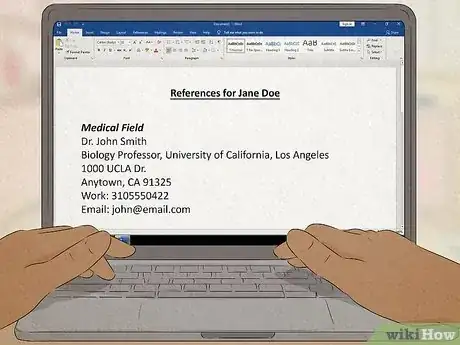



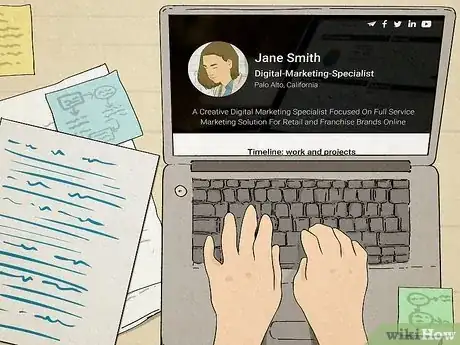







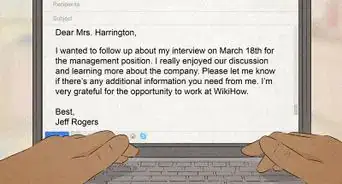





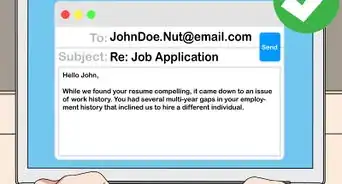




-Step-20-Version-2.webp)








